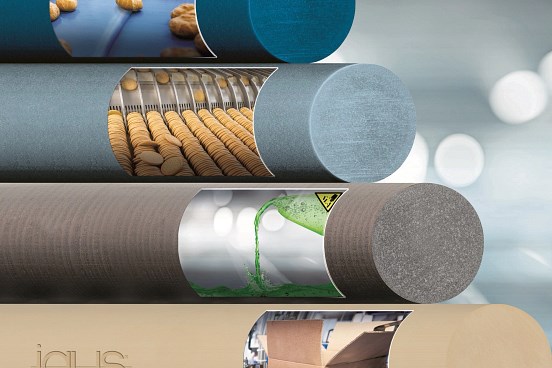New Wear Resistant Bar Stock for Specialty Machined Parts
Four new rod/bar stocks are self-lubricating for maintenance-free operation. Two are food-grade.

New iglide wear-resistant, self-lubricating bar stocks from igus. (Photo: igus)
Igus, the specialist in wear-resistant materials for bearings, rollers, sliding parts and the like, has introduced four new iglide machinable bar stock grades. These proprietary self-lubricating materials are compounded with fibers or filaments and solid lubricants.
• iglide AC500 is a high-heat resistant material for bushings and sliding elements that come into contact with food. This FDA-compliant material withstands up to 250 C (482 F), suiting it, for example, to sliding elements in baking lines. It also boasts exceptionally high chemical resistance, so it can withstand cleaning agents common to the food industry.
• iglide A250 round bars are aimed at applications like conveyor rollers used in the food and packaging industries. Its low-friction characteristics reportedly reduce the drive power required for conveyor belts, and its high compressive strength allows use with high belt speeds. It meets requirements of the FDA and EU Regulation 10/2011.
• iglide H3 was developed for contact with aggressive media in pump applications such as fuel pumps. It’s described as an “extremely hard-wearing material” with low moisture absorption.
• iglide E is aimed at plain bearings that dampen vibrations in combination with aluminum shafts. It reportedly shows excellent wear properties in linear pivoting motions in textile, packaging, printing, and vending machinery applications.
Related Content
-
Prices of Volume Resins Generally Flat or Lower
Exceptions in early March were PP and PS, which moved up solely due to feedstock constraints, along with slight upward movement in PVC and PET.
-
General Polymers Thermoplastics to Further Expand Distribution Business
NPE2024: Following the company’s recent partnership buyout, new North American geographic territories are in its sight.
-
Prices Bottom Out for Volume Resins?
Flat-to-down trajectory underway for fourth quarter for commodity resins.
















